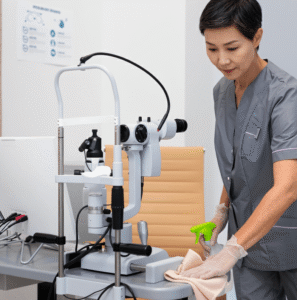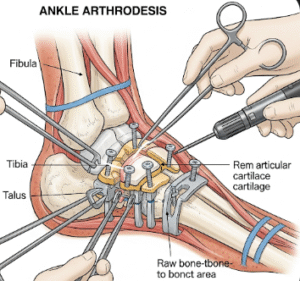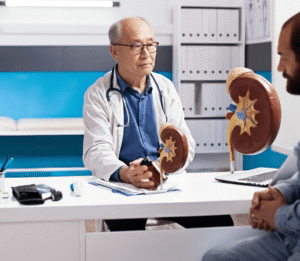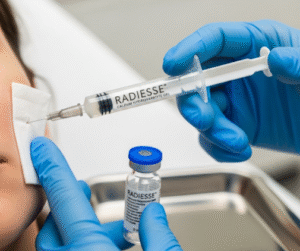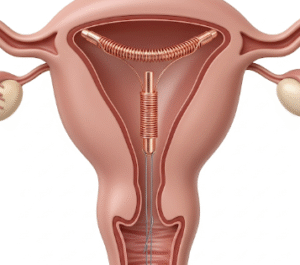Overview
Alpha-1 Antitrypsin Deficiency (AATD) is a rare, inherited genetic disorder that can lead to serious lung and liver disease. The condition results from the lack or dysfunction of a protein called alpha-1 antitrypsin (AAT), which protects tissues from enzyme damage. While global awareness is limited, early diagnosis and treatment are essential, and South Korea offers both advanced diagnostic testing and personalized treatment plans.
What is Alpha-1 Antitrypsin Deficiency?
Alpha-1 antitrypsin deficiency occurs when the liver produces abnormal AAT protein, which either fails to reach the lungs or builds up in the liver, causing damage. The deficiency increases the risk of developing emphysema and liver disease, even in non-smokers. It is inherited in an autosomal codominant pattern, meaning both parents must pass on the defective gene.
Symptoms
Pulmonary Symptoms (Lung-related):
- Shortness of breath (especially with activity)
- Chronic cough with phlegm
- Wheezing
- Frequent respiratory infections
- Fatigue
- Barrel-shaped chest (in advanced emphysema)
Hepatic Symptoms (Liver-related):
- Jaundice (yellowing of skin or eyes)
- Abdominal swelling (ascites)
- Enlarged liver (hepatomegaly)
- Liver cirrhosis
- Elevated liver enzymes
Symptoms usually appear between ages 20 and 50 but can vary significantly.
Causes
- Genetic mutation in the SERPINA1 gene, inherited from one or both parents
- Deficiency or abnormal form of the alpha-1 antitrypsin protein
- Inability of the protein to reach the lungs or excessive accumulation in the liver
Risk Factors
- Family history of AAT deficiency, COPD, or unexplained liver disease
- Smoking (major accelerant for lung damage in AATD)
- Environmental pollutants or workplace exposure to dust/fumes
- Alcohol use (worsens liver symptoms)
- Being of Northern or Central European descent, where prevalence is higher
Complications
- Early-onset emphysema
- Chronic obstructive pulmonary disease (COPD)
- Liver cirrhosis or failure
- Hepatocellular carcinoma (liver cancer)
- Panniculitis (inflammation of fat beneath the skin)
- Increased risk of bronchiectasis and chronic infections
Prevention
AATD itself cannot be prevented, but its progression and complications can be slowed by:
- Avoiding smoking and secondhand smoke
- Regular monitoring of liver function and lung health
- Avoiding alcohol and hepatotoxic drugs
- Vaccinations for hepatitis A/B, influenza, and pneumonia
- Genetic counseling for families with a history of AATD
Treatment Options in Korea
South Korea offers comprehensive care for AATD through specialized pulmonology and hepatology centers. Here are the main treatment paths:
1. Augmentation Therapy
- Intravenous infusion of alpha-1 proteinase inhibitor (e.g., Prolastin, Zemaira)
- Slows lung damage but not approved for liver disease
- Available in select Korean university hospitals with import access
2. Pulmonary Treatments
- Bronchodilators (e.g., salbutamol) for easier breathing
- Inhaled corticosteroids to reduce inflammation
- Oxygen therapy for advanced lung disease
- Pulmonary rehabilitation programs (e.g., exercise, breathing techniques)
3. Liver Management
- Regular liver enzyme testing
- Avoidance of alcohol and hepatotoxic medications
- Monitoring for signs of liver fibrosis or cirrhosis
- Liver transplantation in cases of liver failure (available at Asan Medical Center, Samsung Medical Center)
4. Gene Therapy (Research Stage)
- South Korea is participating in global clinical trials aiming at CRISPR-based gene therapy to correct the SERPINA1 mutation.
5. Lifestyle and Support
- Smoking cessation programs
- Nutritional counseling for liver support
- Psychological counseling for chronic illness
- Patient education and genetic family screening



